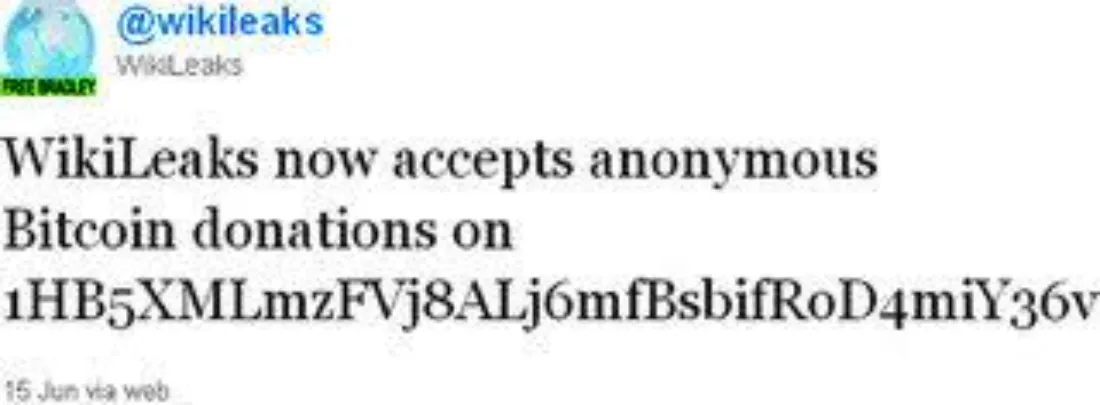KICKING THE HORNET'S NEST
December 11, 2010
1BTC:$0.228000
- Artist
- Daniel Liang
- Fact Date
- December 11, 2010
- Fact #
- 035
- Printing Specifications
- Paper / Stock
- Xper Paper
- Page Size
- 70cm x 35cm
In 2011, WikiLeaks began accepting BTC donations after being blockaded by Visa and Mastercard. The whistleblower organisation had delayed Bitcoin integration, originally earmarked for 2010, after protests from Satoshi who predicted: “WikiLeaks has kicked the hornet’s nest, and the swarm is headed towards us.” As usual, he wasn’t wrong.
In 2010, WikiLeaks was a real thorn in the side of global governments. “We Steal Secrets” was the apposite name for the documentary subsequently made about the notorious organisation, and it didn’t just steal them – it leaked them publicly, much to the embarrassment and annoyance of the US and its three-letter agencies especially.
A concerted effort was made to cut off WikiLeaks’ funding sources by leaning on the payment giants that processed its donations including PayPal, Visa, MasterCard, Bank of America, and Western Union. Once they folded, WikiLeaks was isolated from the fiat world, just like the early Bitcoin exchanges found themselves when PayPal cut off access. It was a major blow for WikiLeaks, eradicating 95% of its income overnight, but potentially not a fatal one because there was still one payment option that couldn’t be curtailed – Bitcoin.
Given the organisation’s adjacency to BTC – the same cryptography used to secure Bitcoin’s network also helped whistleblowers send PGP-encrypted messages to WikiLeaks – they were a natural fit for one another. Indeed, Julian Assange was a veteran cypherpunk with a cryptography background who might have wound up “running bitcoin” just like Hal Finney had his life taken a different turn.

There was just one problem with this proposed alliance: not everyone was enamoured with WikiLeaks publicly endorsing Bitcoin at a time when governments were hellbent on shutting the organisation down. And chief among those harbouring major reservations was Satoshi Nakamoto himself.
Inviting the Swarm
In late 2010, the prospect of WikiLeaks embracing Bitcoin provoked intense debate on the Bitcointalk forum. “Bring it on,” urged “RHorning” – “Let's encourage Wikileaks to use Bitcoins and I'm willing to face any risk or fallout from that act.”
Bitcoin developer Jeff Garzik (“jgarzik”) took a different view, chiding that WikiLeaks adoption “could permanently marginalize bitcoin, keeping it out of the mainstream for good. Is that really the end result the bitcoin community most desires?”
Satoshi concurred, writing: “No, don't "bring it on". The project needs to grow gradually so the software can be strengthened along the way. I make this appeal to WikiLeaks not to try to use Bitcoin. Bitcoin is a small beta community in its infancy. You would not stand to get more than pocket change, and the heat you would bring would likely destroy us at this stage.”

A few days after his initial plea, Satoshi’s apprehension only grew. A PCWorld article picked up on the idea of WikiLeaks using Bitcoin as a workaround for the blockade, bringing a fresh burst of media attention. On December 11th, 2010, Satoshi returned to the subject and this time his words were ominous: “It would have been nice to get this attention in any other context. WikiLeaks has kicked the hornet’s nest, and the swarm is headed towards us.”
In the event, WikiLeaks deferred its decision to accept BTC until 2011, by which point the swarm was already buzzing around Bitcoin. It had grown too big to hide.
- Artist
- BTC On this day
- December 11, 2010
- Market Cap
- $1,106,917
- Block Number
- 130,733
- Hash Rate
- 0.105 TH/s
- Price Change (1M)
2%
- Price Change (3M)
270%
- Price Change (1Y)
34185%
